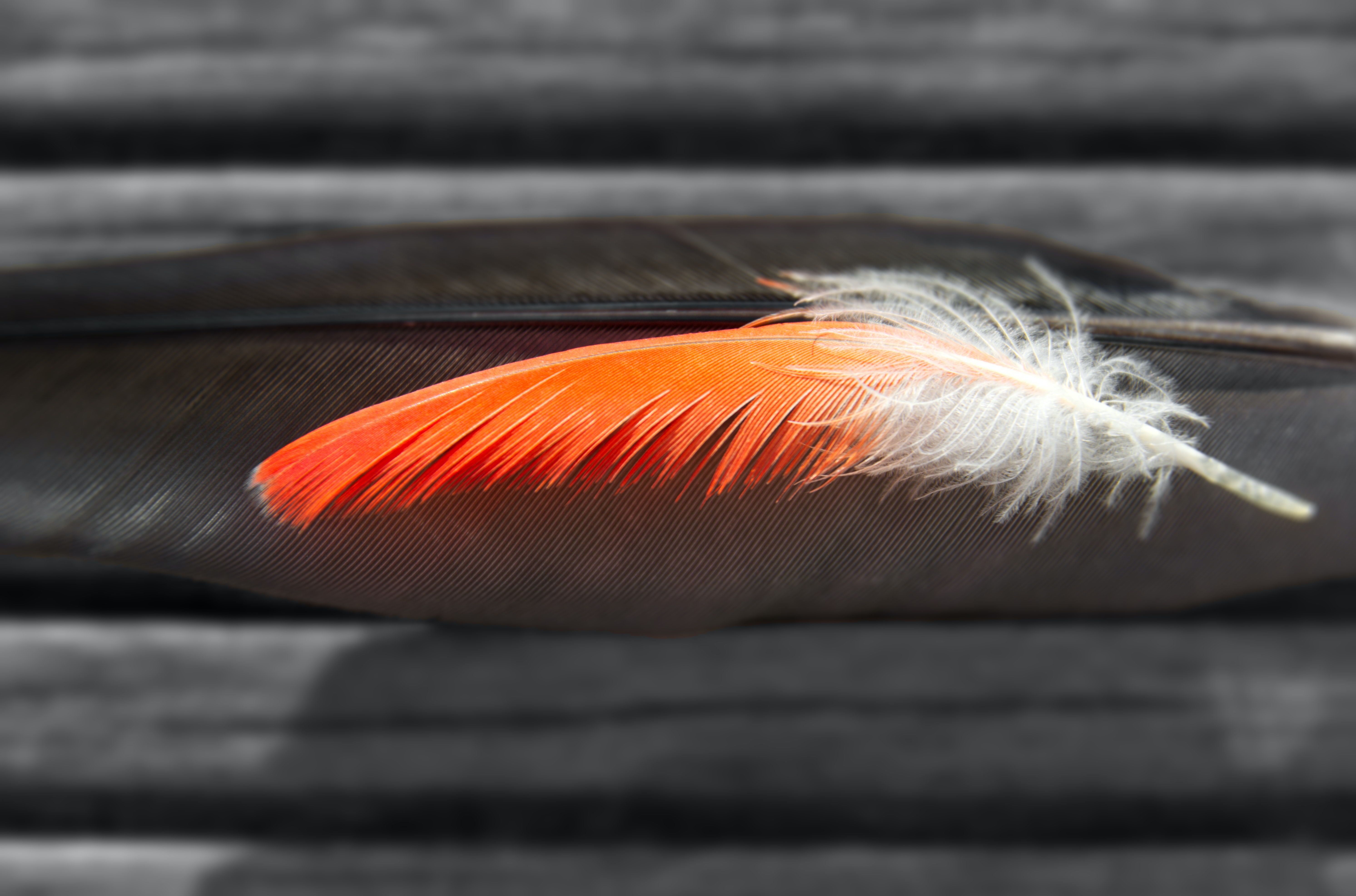
Triquetra by Eva Lynch-Comer
There once was a phoenix woman named Nuri. She danced so gracefully the leaves in the wind rushed to dance with her. Her voice was so beautiful that the other birds flocked to her every time she sang. Her brilliant red feathers sparkled as if covered with dewdrops. Though she was gifted, she longed for companionship. Eventually, she found love with a charming phoenix man and they had two beautiful phoenix daughters, Liesel and Grethel.
The girls had their mother’s talents. When Liesel sang, trees would tremble. When Grethel danced, stars shone brighter for her. Nuri was overcome with joy but their father was not really a phoenix—he was a white raven wearing the skin of a phoenix he had killed. When Nuri fetched her family worms and plants, he sang a song to Liesel and Grethel:
“Give your gifts to me, little phoenix daughters. Give me your colors, your love, and your joy.” Every time they heard the song their feathers would slowly turn white. Soon Liesel couldn’t sing anymore, she could only squawk and Grethel couldn’t dance anymore, she could barely shake her feathers. Neither could fly, but they didn’t know why.
Their raven-father could only survive by stealing the gifts of others. His daughters now depleted, he sang the sinister song to Nuri until she couldn’t sing or dance either. Her eyes pierced through his phoenix skin finally seeing the white raven beneath. Nuri’s ability to fly was waning, so she quickly gathered her children and carried them down from the clouds and onto the soft earth.
Nuri raised Liesel and Grethel by herself as they grew older. They adapted to the customs of this ground-world and made a new home in a tree hollow. Nuri threw rosewater around the tree to remind the girls of her love. Each time they sniffed it their white feathers turned a light pink. Burning sage wafted around their tree hollow and enveloped the family in its protective sharp scent, turning their feathers light orange. With time, they could harmonize with the music of the whistling wind and dance to the rhythm of the percussive rain. Eventually, their feathers turned from white to a stunning red-streaked gold, and they could all fly again. They each had a single white feather left over, the only remnant of the suffering they had endured.
Once they had their strength about them, they sought out the evil white raven-father who was singing to an unsuspecting nightingale. Nuri, Liesel, and Grethel started a chant to drown out his voice, “We reclaim our love! We reclaim our peace! We reclaim our gifts! We reclaim our joy!” They chanted so loud, the raven-father could not finish his song. He turned to dust, his white powdery remains sinking below the earth. The nightingale introduced herself as Philomela and she thanked them for saving her. Nuri, Liesel, and Grethel invited Philomela back to their tree hollow, and together, they flew back home, greeted by the warm scent of rosewater and sage.